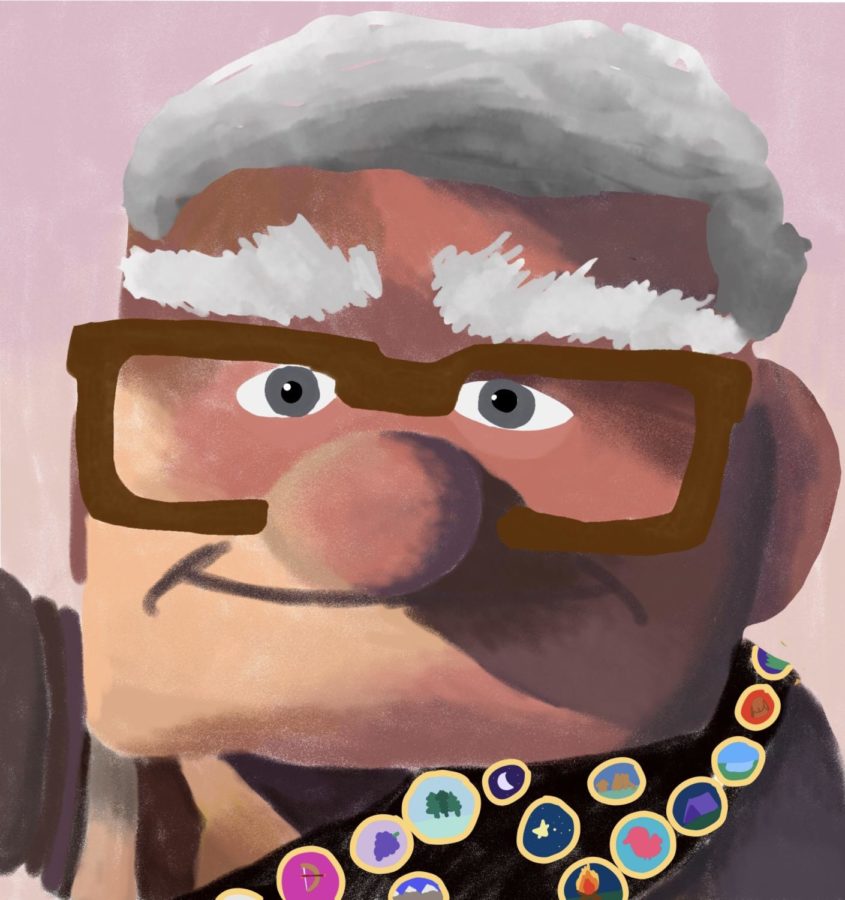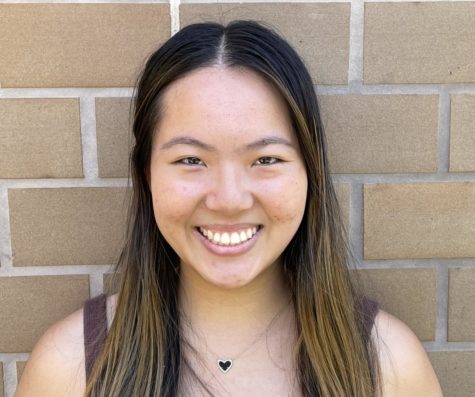Ed Asner’s death illuminates a nostalgic yet hopeful legacy
Anna Zhao
Ed Asner passed away on Aug. 29, though his roles created a lasting impact on the acting industry.
September 13, 2021
Ed Asner, the Emmy-award winning actor known for his roles in “The Mary Tyler Moore Show” and “Up”, died on Aug. 29 at his home in Los Angeles, leaving behind influential works for the Dougherty community and a foundation that continues to carry out his legacy.
At 91 years old, Asner had a repertoire chock-full of the loveable curmudgeon, including the acerbic journalist Lou Grant in “The Mary Tyler Moore Show” and gruff yet soft-hearted Carl Fredericksen in “Up”.
DVHS senior Mariam Yar, who has been in multiple school drama productions including Love/Sick (2018), RENT (2019), Almost, Maine (2020), and The Laramie Project (2021), is familiar with Asner’s other characters like Santa Claus in “Elf” and Mr. Carson in “Home Alone: The Holiday Heist”.
“It takes a lot to stay in the acting industry … and to have a huge impact on the acting industry … at an older age than usual actors, considering Asner was 76 when ‘Up’ was first released … [makes him] a really great actor,” Yar said.
DVHS junior Pranav Hegde felt especially that Asner’s work in “Up” gave an inspiring message on chasing your dreams. In the movie, Asner’s character tries to fulfill his late wife’s dream of moving their house to the top of Paradise Falls by tying thousands of balloons to the roof and piloting it over.
“I like that idea because it sends a message that you’re never too young to … go after your aspirations” he said. “And it also tells you that we shouldn’t let an obstacle potentially [block us] from going for those aspirations.”
It is a message Hegde feels will be timeless even in future generations.
“They’ll always get that message from the movie … and I think it’s a really good example, especially for young children,” he said. “They don’t have to give up on their dreams so early in their lives if they feel like they’re stuck on a certain plateau.”
Yar echoed this sentiment, rendering Asner’s legacy into something deeply personal.
“I would like to thank Mr. Asner for being a part of my imagination and childhood,” Yar said. “He taught me to always cherish memories … and to let people love you because everyone deserves to be loved.”
The DVHS senior Homecoming theme this year was also selected to be “Up”, as it is a beloved movie and one that brings up childhood memories as well as hopes for the future.
“Tying the balloons is like a new beginning. And being seniors, it’s kind of like a new beginning when you go to college,” DVHS senior Pragnya Kunamneni said.
DVHS Drama Club advisor Mr. Noah Kopp also praised Asner’s acting techniques in creating a real persona when playing Carl.
“[Asner was] willing to show vulnerability, and you have to be willing to sort of take what is private to you and share it with the greater community [to be a successful actor],” Kopp noted.
DVHS junior Pattraporn Ploy Jirasirinuphan agreed, mentioning that Carl’s character arc was made more realistic by Asner’s portrayal, despite the movie on the whole being confusing for her.
“He did a good job portraying … [Carl as] closed off but then later open[ing] up,” Jirasirinuphan said.
Asner’s unique restraint is what DVHS Logistics officer of Drama Club Sarisha Sabhlok terms “the mask and core.”
“He has a really good balance between not being able to express emotion but expressing so much emotion at the same time, which is really difficult to achieve,” she enthused. “That’s why I think … the movie was so popular.”
Yar adds to this by lauding Asner’s tremendous skill as an actor.
“He does a really good job at portraying emotion in his character through voice acting, especially in one of the scenes where he’s trying to save Russell and is fighting off Charles Muntz,” Yar said.
Asner, who has a son and three grandchildren with autism, also co-founded the Ed Asner Family Center with his daughter-in-law Navah Paskowitz-Asner. The establishment is meant to be a place for special needs families to find community and support programs while nurturing their children in various passions including fine arts and theatre.
“Acting and performance saved my life,” Asner stated in a letter for the foundation’s purpose. “Through acting and the arts, I found self-confidence and was able to use that confidence in critical areas of my life.”
The center, in Asner’s vision, is about paying forward that same self-confidence to neurodivergent children, bringing the arts to them in “a place where the most beautiful dreamers of all can have their place to thrive.”
Asner was also a strong advocate for lower-paid actors, and while president of the Screen Actors Guild in 1981, took broad union measures to support its members.
“He’s creating a safe space for people,” Sabhlok commented. “Especially as an actor, you want to be in a union, and knowing he was the president of one, you just know that he loves creating a safe space for actors.”
Yet Asner’s celebration of life continues to be tinged by the mourning of his own passing. Kopp maintains that the loss when a meaningful artist passes is similar to the passing of someone in one’s personal life.
“I think it’s painful … because the memories and the connection that you have with them dies with them,” Kopp said.
However, Kopp believes the work they leave behind is an invitation for those the artist influenced to continue to influence others.
“This person was important to me and here’s what was important about them,” he emphasized. But he believes the most important thing to ask is: “What do I want to do with that moving forward?”






